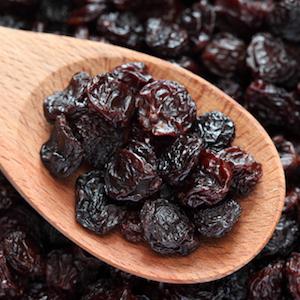Busybodies in the American public, never content to leave other people alone, always seem to need a common enemy to rally against. For years, it was McDonald's. Then it was Monsanto and Big Pharma. Now, it's Big Soda.
At first glance, a war on soda might appear to make sense. There is no nutritional benefit to soda. Given the large and growing segment of the U.S. populace that is obese or contracting type 2 diabetes, perhaps a Pigovian tax on soda (with the aim of reducing soda consumption) makes sense. After all, the science on sugar is pretty clear: Too much of it in your diet can lead to health problems.
But a closer look at food science reveals that a tax on sugary drinks (such as soda, sports drinks, and tea), a policy being pondered by voters in the San Francisco Bay area, is deeply misguided. We get sugar in our diets from many different sources, some of which we would consider "healthy" foods.
A 12-oz can of Coke has 39 grams of sugar. That's quite a bit. How does that compare to other foods? You might be surprised.
Starbucks vanilla latte (16 oz) = 35 grams
Starbucks cupcake = 34 grams
Yogurt, sweetened or with fruit (8 oz) = 47 grams
Homemade granola (1 cup) = 24.5 grams
Grape juice (8 oz) = 36 grams
Mango (1 fruit without refuse) = 45.9 grams
Raisins (A pathetic 1/4 cup) = 21 grams
If these food activists were consistent, they would also advocate for a tax on fruit juice, granola, and coffee. But considering that these very same activists are probably vegan, organic food-eating granola-munchers, they're not going to do that. The truth is, moderation is key to a healthy diet and preventing diseases like obesity and type 2 diabetes*. But that simple message is boring, and it doesn't excite nanny state activists.
Furthermore, if proponents of a soda tax were actually serious about reducing diseases related to poor nutrition, they would endorse a public health campaign aimed at raising awareness of the sugar content found in all foods. Or, they might endorse a Pigovian tax on all high-sugar foods. But, they won't do that, either, because it would be widely despised, as people strongly dislike paying large grocery bills. So instead, they demonize Big Soda, which is politically popular.
And that is the very definition of a feel-good policy based on junk science.
*It should also be pointed out that food choices are only one factor among many that determine whether a person becomes obese or develops type 2 diabetes. Genetics, weight, and physical inactivity also play roles.




